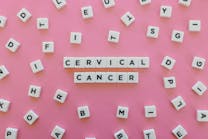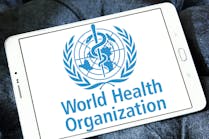10 things healthcare professionals need to know about U.S. COVID-19 vaccination plans
With the possibility of one or more COVID-19 vaccines becoming available before the end of the year, the Centers for Disease Prevention and Control (CDC) released 10 things healthcare professionals need to know about where those plans currently stand.
1. Many COVID-19 vaccine candidates are in development, and clinical trials are being conducted simultaneously with large-scale manufacturing. It is not known which vaccines will be authorized or approved — CDC is planning for many possibilities.
CDC is working with partners at all levels, including healthcare associations, on flexible COVID-19 vaccination programs that can accommodate different vaccines and multiple scenarios. CDC is in contact with your state public health department and immunization program manager, and we will continue to stay in contact throughout this entire process.
2. The safety of COVID-19 vaccines is a top priority.
The current vaccine safety system is strong and robust, with the capacity to effectively monitor COVID-19 vaccine safety. Existing data systems have validated analytic methods that can rapidly detect statistical signals for possible vaccine safety problems. These systems are being scaled up to fully meet the needs of the nation. Additional systems and data sources are also being developed to further enhance safety monitoring capabilities. CDC is committed to ensuring that COVID-19 vaccines are safe. Learn more about how CDC works to ensure the safety of vaccines in the United States.
3. As a patient’s most trusted source of information about vaccines, you will play a critical role in helping build confidence in COVID-19 vaccination.
As you talk with patients, acknowledge the disruption COVID-19 has had on all our lives. This allows you to establish common concerns that can be addressed by vaccination. It’s understandable that patients will have questions and CDC is developing resources to help you address these concerns.
4. At least at first, COVID-19 vaccines may be used under an Emergency Use Authorization (EUA) from the U.S. Food and Drug Administration (FDA).
5. Once FDA authorizes or approves use of COVID-19 vaccine(s), limited quantities will become available very quickly because of advance planning by the U.S. government and other entities.
Typically, it can take months for a vaccine to become available after it receives FDA authorization or approval, but in the case of a COVID-19 vaccine, it could be a matter of days. CDC is already planning, in collaboration with many partners, for delivering vaccines. With funding from the federal government, manufacturing capacity for selected vaccine candidates is being advanced while they are still in development rather than waiting to scale up after approval or authorization.
6. Limited COVID-19 vaccine doses may be available this year, but supply will increase substantially in 2021.
The goal is for everyone to be able to easily get a COVID-19 vaccine as soon as large quantities are available. The federal government began investing in select vaccine manufacturers to help them increase their ability to quickly make and distribute a large amount of COVID-19 vaccine.
7. If there is limited supply, some groups may be recommended to get a COVID-19 vaccine first.
Experts are working on figuring out how to give these limited vaccines in a fair, ethical, and transparent way. The National Academies of Sciences, Engineering, and Medicine (NASEM) gave input to the Advisory Committee on Immunization Practices (ACIP). ACIP will issue recommendations to CDC once a vaccine is authorized or approved for use.
8. All interested vaccination providers may not receive vaccines immediately.
If there is a limited supply of COVID-19 vaccines, doses will likely be distributed to providers that serve groups identified to get vaccinated first. There will be an application and onboarding process for those interested in providing COVID-19 vaccines. There are specific logistical requirements, including requirements for vaccine storage and handling, product tracking, administration, and reporting. It will be important to work with your state and local health department to get the latest information on vaccine distribution and availability in your community.
9. At first, COVID-19 vaccines may not be authorized, approved, or recommended for children.
Only non-pregnant adults participated in early clinical trials for various COVID-19 vaccines. However, clinical trials continue to expand who is recruited to participate. The groups recommended to receive the vaccines could change in the future.
10. COVID-19 vaccine planning is being updated as new information becomes available.





